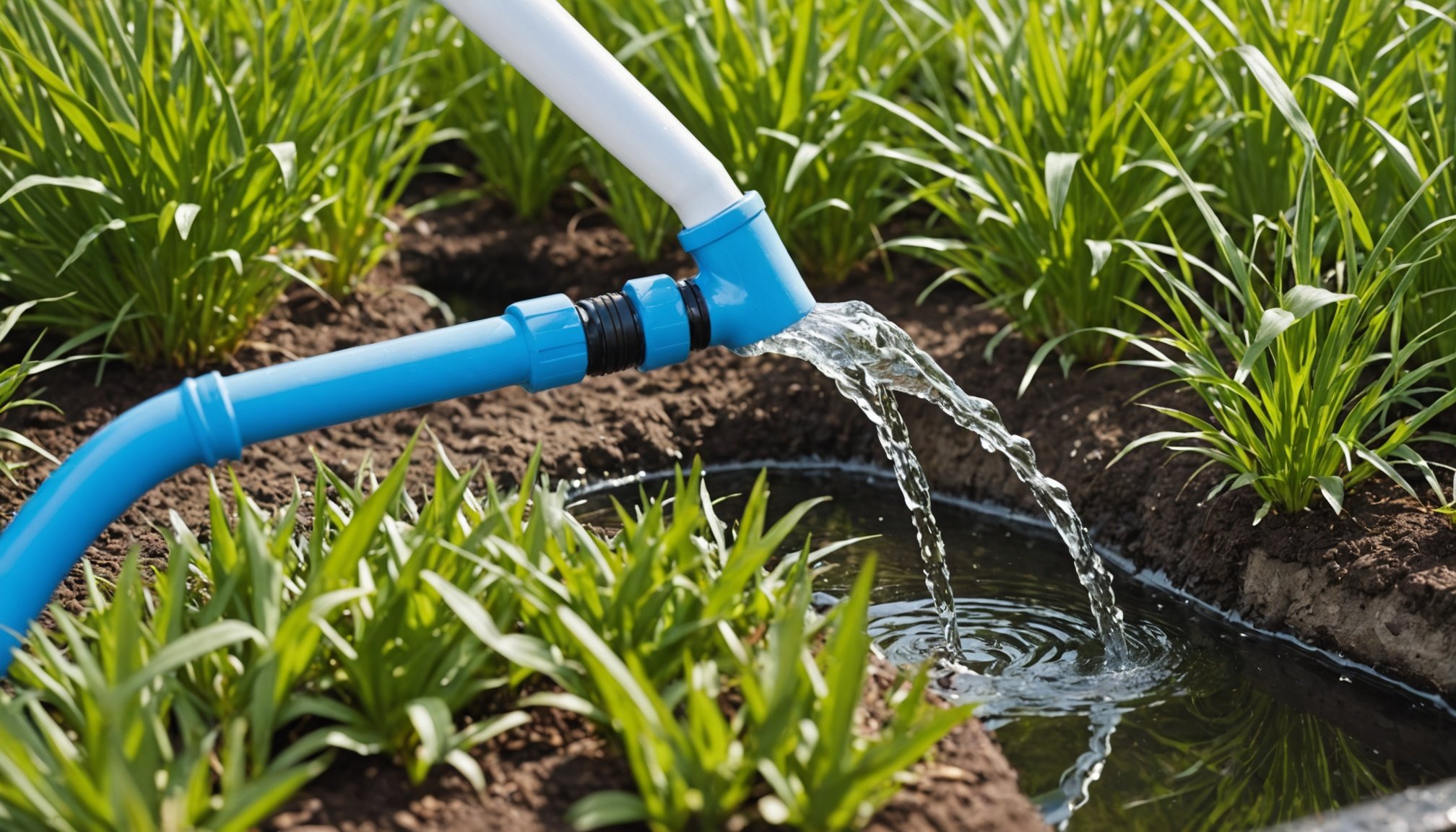Unleashing Innovative Tactics to Reduce Water Use in UK Households
As the world grapples with the challenges of climate change, water scarcity, and sustainable living, the UK is at the forefront of innovative strategies to reduce water use in households. This article delves into the cutting-edge technologies, collaborative initiatives, and practical strategies that are transforming the way we use water in our homes.
The Need for Innovation in Water Use
Water is one of our most precious resources, yet it is often taken for granted until scarcity hits. In the UK, the average household uses around 145 litres of water per person per day, a figure that is significantly higher than the ambitious target of 50 litres per person set by the 50L Home Coalition[1].
In parallel : Overcoming obstacles: essential challenges in brownfield property development
The need for innovation is driven by several factors, including urbanization, climate change, and the increasing pressure on municipal water systems. As Dr. John Gaffney, Technical Lead for the Water Quality programme at Siemens UK & Ireland, notes, “The digitalisation of the water industry is still in its infancy, but it holds the key to addressing perennial and future challenges such as decarbonisation, network leakages, and water quality management”[2].
Innovative Technologies in Water Management
The integration of modern analytics, AI, and smart technologies is revolutionizing water management in UK households. Here are some of the innovative solutions making a significant impact:
Topic to read : Groundbreaking strategies for developing cost-effective housing solutions for low-income families without relying on public funds
Smart Water Monitors and Leak Detectors
Devices like the Flume Water Monitor and LeakBot connect to a home’s plumbing system to track real-time water consumption and detect leaks. These tools not only save water but also prevent costly damage caused by unnoticed leaks. For instance, the 50L Home Coalition’s pilot in London uses real-time alerts for leaks and excessive consumption, empowering homeowners to take immediate action and reduce their water usage by up to 19% compared to previous consumption[1].
Smart Meters and Real-Time Data
Affinity Water’s collaboration with Independent Water Networks Limited (IWNL) has introduced the Jellyfish Bridge Meter, which transforms traditional water meters into smart meters. This technology provides real-time water usage data via a user-friendly app, allowing customers to monitor their consumption, identify leaks, and make more sustainable choices. As Frankie Pumilia, Assistant Project Manager at Affinity Water, stated, “By harnessing the power of smart technology, we can gain valuable insights into customer behaviour and optimise our water management strategies”[3].
Water-Efficient Fixtures and Appliances
Installing water-efficient fixtures and appliances is a straightforward yet effective way to reduce water use. Aerated taps, low-flow showerheads, and dual-flush toilets can drastically cut water usage without sacrificing comfort. For example, switching to a low-flow showerhead can save hundreds of litres of water per year, especially if you reduce your shower time by just a few minutes each day[5].
Collaborative Initiatives and Government Support
The transformation of the UK’s water sector is not just about individual innovations but also about collaborative efforts and government support.
The 50L Home Coalition
This coalition is piloting groundbreaking innovations in 30 London homes, aiming to reduce daily household water use to just 50 litres per person. The project builds on the learnings from a similar scheme in Los Angeles, where houses retrofitted with water-saving fixtures and appliances showed significant reductions in water usage[1].
Siemens and the Water Quality Analytics as a Service (WQAaaS)
Siemens, in partnership with Northumbrian Water Group (NWG) and the University of Sheffield, has launched the WQAaaS model. This service allows operators to outsource the installation and management of sensors that monitor water quality data in real time, providing a comprehensive and cost-effective solution for water quality management[2].
Affinity Water and IWNL’s Water Neutrality Initiative
Affinity Water and IWNL’s collaboration has led to the creation of a water-neutral and water-positive housing development in Mid-Bedfordshire. This initiative involves the use of smart metering technology and community engagement to promote sustainable water use and reduce waste. As Charlie Thackeray, Director at IWNL, reflected, “This initiative has enabled us to achieve water neutrality in a high-demand region, with residents fully embracing water conservation”[3].
Practical Strategies for Water Conservation
While innovative technologies are crucial, simple habits and practical strategies can also make a significant impact on water conservation.
Indoor Water Use
- Install Water-Efficient Fixtures: Switch to water-saving taps, showerheads, and dual-flush toilets.
- Spend Less Time in the Shower: Cutting your shower time by 2-3 minutes each day can save hundreds of litres over the course of a year.
- Turn Off Taps When Not in Use: Simple habits like turning off the tap while brushing your teeth or scrubbing dirty dishes can make a significant difference[5].
Outdoor Water Use
- Use Landscaping Strategically: Swap thirsty grass lawns for drought-resistant plants or artificial turf.
- Water Gardens Efficiently: Water gardens early in the morning or late in the evening to minimize evaporation.
- Collect Rainwater: Use a water butt to collect rainwater for irrigation purposes[5].
Economic and Environmental Benefits
The adoption of innovative technologies and practical strategies for water conservation not only benefits the environment but also has significant economic advantages.
Cost Savings
Investing in water-saving technologies can lead to substantial cost savings. For instance, smart water monitors can detect leaks early, preventing costly damage and reducing water bills. As Julian Webster, Water Neutrality Engineering Manager at Affinity Water, stated, “By turning traditional water meters into smart meters, we’re able to capture live data that benefits both our customers and the environment, helping us advance a sustainable future for our communities”[3].
Economic Growth
The water sector is a significant contributor to the UK’s economy, and innovative solutions can drive economic growth. New business opportunities are emerging as companies invest in research and development of water-saving products and services. This not only creates jobs but also stimulates economic activity, contributing to long-term economic growth.
Table: Comparative Benefits of Innovative Water Management Solutions
| Solution | Description | Benefits | Cost-Effectiveness |
|---|---|---|---|
| Smart Water Monitors | Track real-time water consumption and detect leaks. | Saves water, prevents costly damage, and reduces bills. | High |
| Smart Meters | Provide real-time water usage data via user-friendly apps. | Empowers customers to make sustainable choices, reduces waste. | High |
| Water-Efficient Fixtures | Aerated taps, low-flow showerheads, dual-flush toilets. | Drastically cuts water usage without sacrificing comfort. | Medium to High |
| Rainwater Tanks | Collect and store rainwater for household and gardening use. | Reduces demand on mains water supplies, lowers utility costs. | Medium |
| Landscaping Strategies | Use drought-resistant plants, mulching, and efficient watering times. | Reduces outdoor water usage, enhances garden sustainability. | Low to Medium |
The journey to a sustainable future begins with data and innovation. As the UK continues to pioneer new technologies and collaborative initiatives, the potential for positive change is immense. By harnessing the power of smart technologies, adopting practical conservation strategies, and fostering public support, we can significantly reduce water use in households.
In the words of Dr. Mark Williams, Scottish Water’s Head of Sustainability and Climate Change, “We are always looking for innovative ways to help us reach our net zero targets… Woodland creation, peatland restoration, and sustainable land management are key parts of our efforts to balance emissions we cannot eliminate”[4].
As we move forward, it is clear that the convergence of modern analytics, AI, and the water-energy-climate (WEC) nexus will continue to transform our understanding of water. With the right tools, a commitment to collaboration, and public support, we can secure a sustainable future for generations to come.
List: Key Players and Initiatives in UK Water Innovation
- 50L Home Coalition: Piloting innovations to reduce household water use to 50 litres per person.
- Siemens: Developing Water Quality Analytics as a Service (WQAaaS) and digital twin technology for water utilities.
- Affinity Water and IWNL: Collaborating on a water neutrality initiative using smart metering technology.
- Scottish Water: Partnering with Rhizocore Technologies for innovative woodland creation.
- Northumbrian Water Group: Collaborating with Siemens and the University of Sheffield on WQAaaS.
- Independent Water Networks Limited (IWNL): Partnering with Affinity Water on water neutrality initiatives.
These innovative companies and initiatives are leading the way in transforming the UK’s water sector, ensuring a more sustainable and eco-friendly future for all.











